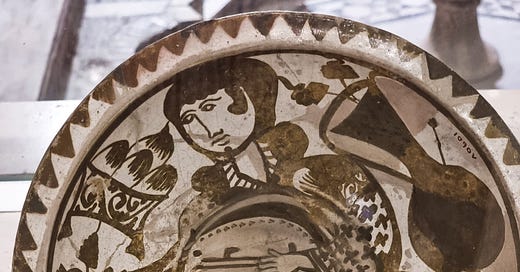Of all the Hebrew books and treatises written in medieval times, one of the most unusual must be the Chronicle of Ahima’atz. A history from the 11th century, written in rhyming prose, it tells the story over the previous 200 years of the family of the chronicler, Ahima’atz ben Paltiel. As we would expect from a history from that period, the information it contains is far from reliable; these days historians rely on documents and evidence, in those days history was based on stories that people told, the memories of older generations and a considerable amount of authorial imagination. Nevertheless, the Chronicle of Ahima’atz is a valuable work, particularly for those stories it tells that do find support in other sources.
Ahima’atz ben Paltiel was born in Capua, in Southern Italy, in 1017. He came from a distinguished family of scholars, communal leaders and poets, descendants of a certain Rabbi Amitai, based in the city of Oria in Southern Italy. I discussed one episode from the Chronicle in my book on the history of Kabbalah, but this article is about the family member who Ahima’atz seems to be most proud of; a man known as Paltiel ben Shefatiah.
In the Chronicle, Paltiel is depicted as an astrologer who was summoned by the Caliph, Al-Muizz (c.930-975). A member of the Fatimid dynasty, Al-Muizz had just conquered the family’s hometown of Oria and wanted Paltiel to interpret a dream he’d had. Paltiel told the Caliph that the dream meant he was destined to conquer three great territories, Sicily, North Africa and Egypt.
The Caliph was pleased with the prophecy and told Paltiel that if his words came true he would give him authority over the whole of his empire. A week later a message arrived from the princes of Sicily asking the Caliph to come and rule over them. Deeply impressed, Al-Muizz immediately appointed Paltiel as his vizier and counsellor “and did not depart from his advice, either to the left or the right.”



